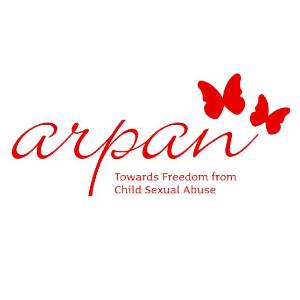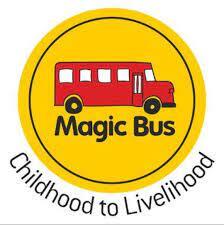
Website UNDP
Background
UNDP is committed to achieving workforce diversity in terms of gender, nationality and culture. Individuals from minority groups, indigenous groups and persons with disabilities are equally encouraged to apply. All applications will be treated with the strictest confidence.
UNDP does not tolerate sexual exploitation and abuse, any kind of harassment, including sexual harassment, and discrimination. All selected candidates will, therefore, undergo rigorous reference and background checks.
UNDP is the UN’s global development network, an organization advocating for change and connecting countries to knowledge, experience, and resources to help people build a better life. UNDP is on the ground in about 170 countries and territories, working with national counterparts on solutions to global and national development challenges.
In the programme countries, UNDP supports stabilization, state‐building, governance and development priorities in in partnership with the host governments, the United Nations system, the development partners and other partners to help the country to achieve sustainable development by eradicating poverty in all its forms and dimensions, accelerating structural transformations for sustainable development and building resilience to crises and shock.
UNDP has worked in India since 1951 in almost all areas of human development, from systems and institutional strengthening to inclusive growth and sustainable livelihoods, as well as sustainable energy, environment and resilience. UNDP’s programmes continue to fully integrate a global vision for catalytic change with India’s national priorities. With over 30 projects on the ground in almost every state, today UNDP India works to achieve the Sustainable Development Goals by transforming traditional models to do development differently. In a rapidly changing global environment, the work of UNDP and the broader UN family aligns with the Government of India’s new national development vision, India 2030, and builds upon the Sustainable Development Goals. UNDP India’s country programme for 2018‐2022 has three major focus areas:
- Inclusive growth
- Environment and energy
- Strengthening systems and institutions
These are supported by a framework of renewed partnerships and blended finance solutions, a pool of financial and technical resources for greater impact and scale, and South‐South expertise
You are invited to join a team of dedicated development professionals whose primary role is to support the India to achieve the 2030 Agenda. As part of the UNDP team your focus will be to work with multiple stakeholders to find the country specific solutions that lead to sustainable development and to ensure no one is left behind ‐ and we reach those furthest behind first.
UNDP is looking for individuals who have the communication, analytical, planning and implementation capacities that can address links, choices and connections across many issues and sectors. We seek individuals who can apply global best practice to national contexts. We are looking for people who are enthusiastic, motivated, and committed to making a positive contribution to Development in India.
Background and scope of portfolio
The Inclusive Growth portfolio is anchored in the national priority of ‘accelerated growth with inclusion and equity, employment generation, and skill India’, aligned to outcome 1 of the UNDP strategic plan. While the focus of outcome 2 is on decent work and economic growth (SDG 8) and reducing inequalities (SDG 10), the UNDP comparative advantage in the sector as a facilitator and knowledge leader is being leveraged to strengthen institutional linkages between enterprise and skills‐training providers and to identify synergies between national programmes and missions to assist marginalized groups access to sustainable skills, jobs, livelihoods, and productive assets
The focus of the portfolio has been primarily women and youth from the marginalized communities across the country. It takes into consideration that women face significant social and economic barriers in participating in India’s workforce. Under the portfolio, there are several projects being implemented, working towards increased awareness, career guidance and counselling, apprenticeships promotion (with industry clusters), micro‐enterprise development, strengthening of the farm/non‐farm and artisanal values chains, and developing second generations managers, enhancing employability and business skills capacity, facilitation of linkages, mentorship support and nurturing the innovation potential of youth and women of rural and urban areas.
Building on the experience and the partnership base of earlier projects and keeping in view the need for intense work on local livelihoods for green growth and expanding digital capacity and access to social security, Promoting Inclusive Growth through Enhanced Access to Local Livelihood Opportunities, Education to Work Transition and Social Protection Schemes (PROGRESS) programme has been initiated in partnership with the Ministry of Skill Development and Entrepreneurship.
The programme is being rolled out in close partnership with the Central and State Governments and aims to leverage partnerships with private sector actors, financial institutions, educational and vocational institutes, training partners, and the community to fill the gaps through innovative approaches and practices. Similarly, it will leverage flagship public schemes.Apart from providing policy and research inputs, UNDP intends to provide a platform for discussion, and sharing of good practices in the spirit of south‐south collaboration.
In this regard, UNDP would like to engage an Skilling and Employment Analyst with multi‐disciplinary experience and the ability to provide high quality output. This will include project implementation, research, proposal writing, collating, and verifying data, developing communication collaterals, organising online/offline events
Duties and Responsibilities
The Skilling and Employment Analyst, Inclusive Growth, will be responsible for developing, designing and steering the implementation of various projects under the portfolio related to skilling and employment. S/He will also support in research and proposal development, knowledge dissemination and communications.
S/he will work under the direct supervision of the Head, Inclusive Growth/Poverty Unit and under the overall guidance of the Deputy Resident Representative. S/he will be based in New Delhi with frequent travel across India and perform the following duties:
Effective project management including monitoring and reporting
- Coordinate discussion with the MSDE for design and development of specific interventions within “PROGRESS” and lead the coordination and management of relevant activities related with skilling, apprenticeship and employment .
- Support identification of appropriate local partner/s, technical support agency/s, governmentdepartments etc. and foster partnership for project implementation
- Assist project managers in review and monitoring of all on‐field activities including monitoring the activities of the support agency / partners,
- Ensure effective implementation of project progress, financial management and achievement of results, in accordance with UNDP policies, UN rules and regulations and applicable donor requirements, including identification of operational and financial problems, development of solutions, follow‐up on audit recommendations
- Liaise with all relevant stakeholders including the Government, private sector and other partners to ensure smooth implementation of project activities, and to build and strengthen existing relationships
Research and proposal development
- Conduct desk research as required on skilling ecosystem, jobs and entrepreneurship, and related areas specifically on implementation of flagship schemes of the Ministry of Skill Development and Entrepreneurship
- Provide necessary technical assistance and research inputs for the preparation of research papers, and knowledge products
- Identify potential areas for work in this sector and write project proposal including executive summary, technical sections, management and staffing sections, risk assessment
Organization of round tables, meetings, networking events
- Assist and coordinate the organization of meetings, workshops, conferences, training, and related activities relevant to the implementation of the project (online/offline)
- Initiate dialogues with existing and potential partners and key stakeholders through roundtables, meetings/workshops, training, and capacity building events
- Provide support for organizing consultations with relevant stakeholders, prepare background material/policy briefs and promote knowledge sharing
Communication and outreach
- Develop scripts/drafts for videos and other communication collaterals
- Develop case studies based on field implementation
- Support with developing IEC material as required
Competencies
Core
- Achieve Results: LEVEL 3: Set and align challenging, achievable objectives for multiple projects, have lasting impact
- Think Innovatively: LEVEL 2: Offer new ideas/open to new approaches, demonstrate systemic/integrated thinking
- Learn Continuously: LEVEL 3: Create and act on opportunities to expand horizons, diversify experiences
- Adapt with Agility: LEVEL 3: Proactively initiate and champion change, manage multiple competing demands
- Act with Determination: LEVEL 3: Think beyond immediate task/barriers and take action to achieve greater results
- Engage and Partner: LEVEL 2: Is facilitator/integrator, bring people together, build/maintain coalitions/partnerships
- Enable Diversity and Inclusion: LEVEL 3: Appreciate benefits of diverse workforce and
champion inclusivity
People Management:
- People Management: UNDP People Management Competencies can be found in the dedicated site.
Cross‐Functional & Technical competencies:
Business Direction and Strategy:
- Strategic Thinking: Ability to develop effective strategies and prioritized plans in line with UNDP’s objectives, based on systemic analysis of challenges, potential risks and opportunities, linking the vision to reality on the ground, and creating tangible solutions; Ability to leverage learning from a variety of sources to anticipate and respond to future trends; to demonstrate foresight in order to model what future developments and possible ways forward look like for UNDP
- Negotiation and Influence: Ability to reach an understanding, persuade others, resolve points of difference, gain advantage in the outcome of dialogue, negotiates mutually acceptable solutions through compromise and creates win‐win situations
- System Thinking: Ability to use objective problem analysis and judgement to understand how interrelated elements coexist within an overall process or system, and to consider how altering one element can impact on other parts of the system
Business Management:
- Monitoring: Ability to provide managers and key stakeholders with regular feedback on the consistency or discrepancy between planned and actual activities and programme performance and results
- Partnerships Management: Ability to build and maintain partnerships with wide networks of stakeholders, Governments, civil society and private sector partners, experts and others in line with UNDP strategy and policies
- Risk Management: Ability to identify and organize action around mitigating and proactively managing risks
- Communication: Ability to communicate in a clear, concise and unambiguous manner both through written and verbal communication; to tailor messages and choose communication methods depending on the audience
- Ability to manage communications internally and externally, through media, social media and other appropriate channels.
Required Skills and Experience
Education:
Essential: Master’s degree or equivalent in Public Administration, Economics, Development Studies, Business Management, Sciences, or closely related fields.
Experience:
- 2 years of work experience in the domain of livelihoods/skilling/ employment/entrepreneurship
- Overall understanding of entrepreneurship ecosystem in the country and demonstrable technical expertise in the thematic areas of skills & employment, women economic empowerment, improving public systems for delivery of services
- Excellent research and technical writing skills with track record of creating compelling, clear, and succinct documents (background note, progress reports and presentation etc.)
- Excellent skills on MS office (MS word, Excel & PowerPoint)
- Additional years of relevant professional work experience
- Experience of working with government, bi/multi‐lateral agency and/or UN Agencies
Required Language:
Fluency in English
To apply for this job please visit estm.fa.em2.oraclecloud.com.





